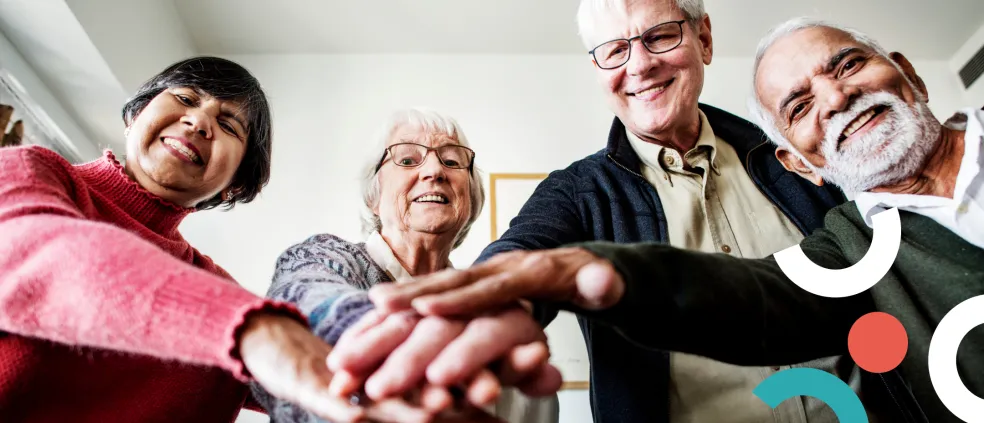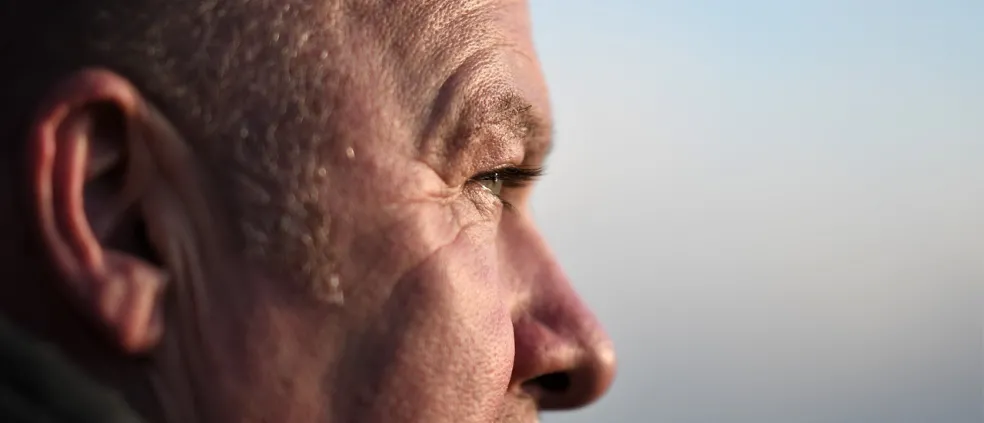As part of the NIHR ARCs national webinar series of 2024, the second event focussed on health inequalities in later life and featured three short talks on LGBTQ+ inclusive care, palliative care needs of ethnically diverse patients and inequalities in dementia.
Watch the webinar
Webinar overview
The event was chaired by Professor Marion Walker MBE, a world-leading authority in stroke rehabilitation. She is also the Equality, Diversity and Inclusion (EDI) Committee Chair at NIHR ARC East Midlands and the Collaboration Lead between the ARC and Health Innovation East Midlands.
“Health inequalities are one of the greatest challenges that we must address. Everyone deserves access to quality healthcare and support as they age, regardless of their background or circumstances.”
The webinar consisted of three short 10-minute presentations, each followed by Q&A.
Inclusive residential care for LGBTQ+ elders
In the first talk, NIHR ARC Kent, Surrey and Sussex’s Dr Keemink (she/her), a Research Fellow at the University of Kent, presented her work on Creating Inclusive Residential Care for LGBTQ+ Elders – the CIRCLE project.
The research explored and evaluated three different ways of supporting residential care providers to improve their LGBTQ+ inclusive care offer. This included a comprehensive inclusion programme in four care homes in Sussex, online Community of Practice meetings and a co-designed resource for care homes.
Dr Keemink ended her session with early practice recommendations for those working in care and thinking more about LGBTQ+ inclusive care.
- Join the event: CIRCLE resource launch event on 11 September
- Read the blog: Breaking down the barriers to inclusive residential care for older LGBTQ+ people
- To find out more about this work, contact j.r.keemink@kent.ac.uk
Understanding palliative care needs of ethnically diverse patients
The second talk was from NIHR ARC South London’s Dr Sabrina Bajwah, a Clinical Senior Lecturer (in the Department of Palliative Care, Policy & Rehabilitation) at King’s College London and an Honorary Palliative Care Consultant at King’s College Hospital.
Dr Bajwah presented her research looking at the response of specialist palliative care services caring for people from ethnic minority groups during COVID-19 pandemic. The team conducted a cross-sectional online survey of all the UK palliative care services’ response to COVID-19, collecting both quantitative and qualitative data.
The results particularly highlighted the lack of focus on delivering equitable care, and recognised that some cultures or ethnicities perhaps required increased or different care delivery to meet the needs and achieve the same outcomes for patients.
- Read the paper: Specialist palliative care services response to ethnic minority groups with COVID-19: equal but inequitable – an observational study
- Watch the educational film: Palliative Care- shifting the focus from equality to equity
- To find out more about this work, contact sabrina.bajwah@kcl.ac.uk
Dementia inequalities
The final presentation was from NIHR ARC North West Coast’s Dr Clarissa Giebel, a Senior Research Fellow in the Institute of Population Health at the University of Liverpool.
Dr Giebel addressed inequalities in dementia, specifically focusing on including public involvement and engagement to find solutions to those inequalities and inequities.
The three approaches used to raise awareness and capacity about dementia included establishing a Liverpool Dementia and Aging Research Forum, a dementia inequalities board game and the North West Coast Living Lab in Aging and Dementia.
- Read the paper: Co-producing a board game to learn and engage about dementia inequalities: First impacts on knowledge in the general population
- Learn more: Dementia inequalities board game, Liverpool Dementia and Ageing Research Forum and North West Coast Living Lab in Ageing & Dementia
- To find out more about this work, contact clarissa.giebel@liverpool.ac.uk

Join the next session
The third and final webinar in this series will explore regional health inequalities on Wednesday 18 September 2024. Register your place here.
Catch up on the first session
The first webinar in the series looked health inequalities in early life, in the context of maternity, ethnicity, mental health and care leavers. Find out more and watch the webinar.
Catch up on the 2023 #ARCseminar series on mental health
Last year's 2023 national #ARCseminar webinar series explored research looking at mental health in the context of some of the most topical themes of our times. Find out more and watch here.
Follow the NIHR ARCs work
- Keep up-to-date with the latest research, events and opportunities from all 15 ARCs across the country: follow @NIHRARCs on X and subscribe to the NIHR ARCs newsletter
- Learn more and find your local ARC on the NIHR ARCs national webpage

